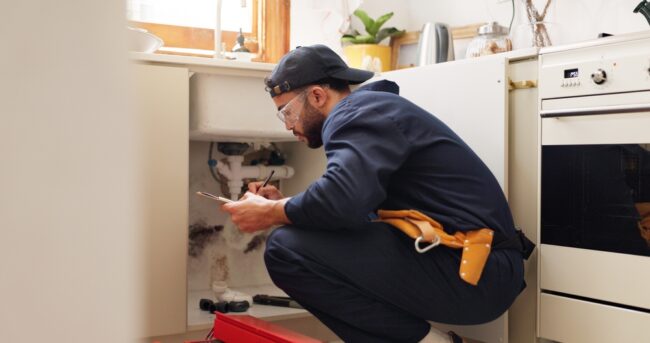
A properly maintained plumbing system stands as a fundamental requirement for achieving both comfort and operational functionality in residential properties. The plumbing system operates as the backbone of daily life because it delivers dependable hot water showers and operates kitchen sinks efficiently. Homeowners rarely think about their plumbing infrastructure until their system experiences a breakdown. The local plumbing company Charlotte Plumbing Masters states that basic DIY home plumbing maintenance will help prevent costly repairs while maintaining system efficiency.
The good news? Basic plumbing maintenance requires no professional plumbing expertise. Basic maintenance steps enable homeowners to protect their homes while saving money and achieving longer plumbing system lifespan.
Why Plumbing Maintenance Matters
Plumbing system neglect results in problems that extend beyond simple annoyances. The development of small problems into major issues will result in costly expenses which include water damage from hidden leaks and mold growth from excessive moisture and drain blockages that produce bad smells and higher utility expenses from leaky toilets and inefficient water heaters and the need for premature replacement of pipes and appliances and pipes.
Regular maintenance of your plumbing system through scheduled checks will prevent emergencies while maintaining continuous operation throughout the year.
DIY Plumbing Maintenance Tips
Every homeowner can perform these practical maintenance tasks which Charlotte Plumbing Masters recommends:
1. Check for Leaks Regularly
Small water leaks result in substantial water waste that increases your utility expenses. Check for leaks under sinks and around toilets and near all appliances including dishwashers and washing machines. Look for:
- Water stains on cabinets or floors.
- Dripping faucets.
- Running toilets that don’t shut off properly.
- Early leak detection enables you to save water resources while stopping expensive structural deterioration from occurring.
2. Clean Drains to Prevent Clogs
Drain clogs represent one of the most frequent problems which homeowners encounter with their plumbing systems. To avoid them:
- Use drain strainers in sinks and tubs to catch hair, food particles, and debris.
- The kitchen sink should never receive grease or oil or coffee grounds disposal.
- Flush drains monthly with hot water and a mixture of vinegar and baking soda.
- Regular maintenance of these minor habits stops drain slowdowns and stops the requirement for dangerous chemical cleaners that damage your pipes.
3. Maintain Your Water Heater
Your water heating system operates continuously throughout each day so inadequate maintenance will shorten its operational lifespan and reduce its performance.
- The tank needs annual draining and flushing to remove accumulated sediment.
- The recommended temperature for water heaters should be set at 120°F for both efficiency and safety reasons.
- Check the unit for signs of leaks and rust and any unusual noises that might occur.
- Regular water heater maintenance provides both hot water availability and reduced energy expenses.
4. Test Water Pressure
The pleasant feeling of high water pressure in showers creates pipe and fixture stress. You can purchase a water pressure gauge at hardware stores to measure your home’s water pressure levels.
- The recommended water pressure range for homes should be between 40 and 60 psi.
- You should install a pressure-reducing valve when your water pressure exceeds safe levels.
- Your plumbing system will receive protection and your appliances will last longer when you maintain correct water pressure levels.
5. Insulate Pipes Before Winter
The risk of frozen pipes becomes significant during winter months. The following steps will help you prevent pipe freezing:
- Protect all exposed pipes located in basements and garages and crawl spaces by using insulation materials.
- Remove outdoor hoses from their connections when winter freezing temperatures become imminent.
- Open faucets slightly during extremely cold nights to help reduce pipe pressure.
- The cost-effective measure of pipe insulation protects your home from expensive burst pipe damage.
6. Take Care of Your Toilet
The toilet operates as a durable fixture but it still requires proper maintenance. The improper disposal of items through flushing includes all types of wipes and paper towels and napkins and feminine hygiene products.
- Wipes (even “flushable” ones).
- Paper towels or napkins.
- Feminine hygiene products.
Check for silent leaks by adding food coloring to the tank water. The presence of tank water in the bowl without flushing indicates that you need to replace the flapper.
